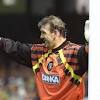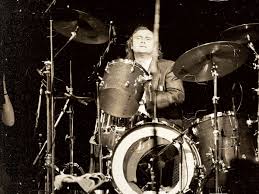Kyle Rittenhouse verdict: Not guilty on all counts

 article
article
KENOSHA, WISCONSIN - NOVEMBER 19: Kyle Rittenhouse puts his hand over his face as he is found not guilty on all counts at the Kenosha County Courthouse on November 19, 2021 in Kenosha, Wisconsin. Rittenhouse was found not guilty of all charges in the
KENOSHA, Wis. - Kyle Rittenhouse was acquitted of all charges Friday after pleading self-defense in the deadly Kenosha shootings that became a flashpoint in the nation’s debate over guns, vigilantism and racial injustice. Continuing coverage can be found in the video player below.
Rittenhouse, 18, began to choke up, fell forward toward the defense table and then hugged one of his attorneys as he heard a court clerk recite "not guilty" five times.
He was charged with homicide, attempted homicide and reckless endangering for killing two men and wounding a third with an AR-style semi-automatic rifle in the summer of 2020 during a tumultuous night of protests over the shooting of a Black man, Jacob Blake, by a white Kenosha police officer.
Rittenhouse, a former police youth cadet, said he went to Kenosha to protect property from rioters. He is white, as were those he shot.
Kyle Rittenhouse was acquitted of all charges Friday.
The anonymous jury, which appeared to be overwhelmingly white, deliberated for close to 3 1/2 days.
Rittenhouse could have gotten life in prison if found guilty on the most serious charge, first-degree intentional homicide, or what some other states call first-degree murder. Two other charges each carried over 60 years behind bars.
A sheriff’s deputy immediately whisked him out a back door through the judge’s chambers.
▼
KENOSHA, WISCONSIN - NOVEMBER 19: Kyle Rittenhouse puts his hand over his face as he is found not guilty on all counts at the Kenosha County Courthouse on November 19, 2021 in Kenosha, Wisconsin. Rittenhouse was found not guilty of all charges in the shooting of three demonstrators, killing two of them, during a night of unrest that erupted in Kenosha after a police officer shot Jacob Blake seven times in the back while being arrested in August 2020. Rittenhouse, from Antioch, Illinois, claimed self-defense who at the time of the shooting was armed with an assault rifle. (Photo by Sean Krajacic - Pool/Getty Images) ( )
As he dismissed the jurors who sat in judgment in the politically combustible case, Circuit Judge Bruce Schroeder assured them the court would take "every measure" to keep them safe.
In reaction to the verdict, prosecutor Thomas Binger said the jury had spoken.
Rittenhouse's mother, sitting several feet away from him on a courtroom bench, gasped in delight, began crying and hugged others around her.
Kyle Rittenhouse defense attorney Mark Richards spoke to the media after Rittenhouse was acquitted of all charges in Kenosha County court.
We are heartbroken and angry that Kyle Rittenhouse was acquitted in his criminal trial for the murder of our son Anthony Huber. There was no justice today for Anthony, or for Mr. Rittenhouse’s other victims, Joseph Rosenbaum and Gaige Grosskreutz.
We did not attend the trial because we could not bear to sit in a courtroom and repeatedly watch videos of our son’s murder, and because we have been subjected to many hurtful and nasty comments in the past year. But we watched the trial closely, hoping it would bring us closure.
That did not happen. Today’s verdict means there is no accountability for the person who murdered our son. It sends the unacceptable message that armed civilians can show up in any town, incite violence, and then use the danger they have created to justify shooting people in the street. We hope that decent people will join us in forcefully rejecting that message and demanding more of our laws, our officials, and our justice system.
Make no mistake: our fight to hold those responsible for Anthony’s death accountable continues in full force. Neither Mr. Rittenhouse nor the Kenosha police who authorized his bloody rampage will escape justice. Anthony will have his day in court.
No reasonable person viewing all of the evidence could conclude that Mr. Rittenhouse acted in self-defense. In response to racist and violent calls to action from militia members, Mr. Rittenhouse travelled to Kenosha illegally armed with an assault rifle. He menaced fellow citizens in the street. Though he was in open violation of a curfew order, Kenosha police encouraged him to act violently. Kenosha police told militia members that they would push peaceful protestors toward the militia so that the militia could "deal with them." Soon after, Mr. Rittenhouse killed Joseph Rosenbaum. The police did nothing. Concerned citizens, confronted with a person shooting indiscriminately on the street, stepped in to stop the violence. Anthony was shot in the chest trying to disarm Mr. Rittenhouse and stop his shooting spree. Still, the police did nothing. Mr. Rittenhouse continued to shoot, maiming Gaige Grosskreutz. The police let Mr. Rittenhouse leave the scene freely. Mr. Rittenhouse came to Kenosha armed to kill. Kenosha police encouraged him to act violently, and our son is dead as a result.
We are so proud of Anthony, and we love him so much. He is a hero who sacrificed his own life to protect other innocent civilians. We ask that you remember Anthony and keep him in your prayers.
David Hancock, a family spokesperson for the Rittenhouse family, spoke at length to the media following Rittenhouse's not guilty verdict.
Rittenhouse testified that he acted in self-defense when he fatally shot two protesters and wounded a third during an August 2020 night of unrest in Kenosha following the police shooting of Jacob Blake, a Black man.
Rittenhouse, who was 17 at the time of the shootings, is charged with intentional homicide and other counts for killing Joseph Rosenbaum and Anthony Huber and wounding Gaige Grosskreutz.
Wisconsin law allows the prosecution and defense to ask that jurors be told they can consider lesser charges as part of the instructions they receive before deliberating. Kenosha County Judge Bruce Schroeder ruled on those lesser charges on Nov. 13.
The list of charges the jurors were allowed to consider include:
- First-degree reckless homicide Pertains to death of Joseph Rosenbaum Max. sentence 60 years (40 years confinement)
- Pertains to death of Joseph Rosenbaum
- Max. sentence 60 years (40 years confinement)
- First-degree recklessly endangering safety Pertains to Richie McGinnis Max. sentence 12 ½ years (7 ½ years confinement)
- Pertains to Richie McGinnis
- Max. sentence 12 ½ years (7 ½ years confinement)
- First-degree recklessly endangering safety Pertains to unidentified man Max. sentence 12 ½ years (7 ½ years confinement)
- Pertains to unidentified man
- Max. sentence 12 ½ years (7 ½ years confinement)
- First-degree intentional homicide Pertains to death of Anthony Huber Mandatory life sentence Jurors also considered: Second-degree intentional homicide (max. 60 years, 40 years confinement) and first-degree reckless homicide (max. 60 years, 40 years confinement)
- Pertains to death of Anthony Huber
- Mandatory life sentence
- Jurors also considered: Second-degree intentional homicide (max. 60 years, 40 years confinement) and first-degree reckless homicide (max. 60 years, 40 years confinement)
- Attempted first-degree intentional homicide Pertains to shooting of Gaige Grosskreutz Max. sentence 60 years (40 years confinement) Jurors also considered: Attempted second-degree intentional homicide (max. 30 years, 20 years confinement) and first-degree recklessly endangering safety (max. 12 ½ years, 7 ½ years confinement)
- Pertains to shooting of Gaige Grosskreutz
- Max. sentence 60 years (40 years confinement)
- Jurors also considered: Attempted second-degree intentional homicide (max. 30 years, 20 years confinement) and first-degree recklessly endangering safety (max. 12 ½ years, 7 ½ years confinement)
Rittenhouse's lawyers put on about 2 1/2 days of testimony to the prosecution's five, with the most riveting moment coming when the 18-year-old told the jury that he was defending himself from attacks when he used his rifle to kill two men and wound a third on the streets of Kenosha in the summer of 2020.

Kyle Rittenhouse testifies about Gaige Grosskreutz holding a gun toward him during his trial at the Kenosha County Courthouse on November 10, 2021 in Kenosha, Wisconsin. (Photo by Mark Hertzberg-Pool/Getty Images)
Two days after the shooting of Jacob Blake, Rittenhouse said he went to downtown Kenosha and volunteered to clean graffiti off a high school. He met the owners of a car dealership where vehicles had been burned, offered his "condolences," and said he wanted to help. He said the owners asked his friend to protect their business, and that he joined his friend and others that night. He took his semi-automatic rifle and first-aid supplies. He gave his bulletproof vest — which he said was issued by the Grayslake Police Department — to a friend. He said he felt he wouldn't need it "because I'm going to be helping people."
What did Kyle Rittenhouse say about his encounters with Joseph Rosenbaum?Rittenhouse testified that Rosenbaum threatened his life twice. He said he had been putting out fires and asking people if they needed medical help when he saw Rosenbaum carrying a steel chain and wearing a mask. Rosenbaum began screaming at him, he said.
"He was just mad about something. He's screaming, 'If I catch any of you (expletives) alone I'm going to (expletive) kill you,'" Rittenhouse testified.
SIGN UP TODAY: Get daily headlines, breaking news emails from FOX6 News
When he encountered Rosenbaum again later, Rittenhouse said that Rosenbaum shouted, "I'm going to cut your (expletive) hearts out and kill you."
Later, Rittenhouse was walking with a fire extinguisher after hearing protesters were burning cars at one of the lots his friends were trying to protect. Rittenhouse said he saw a fire in a truck on one of the lots when Joshua Ziminski approached him with a gun. Rosenbaum came out from behind some cars and "ambushed" him, Rittenhouse testified.

Kyle Rittenhouse
Rittenhouse said he tried to run away but Rosenbaum chased him as Ziminski yelled "get him" and "kill him." Rittenhouse testified that Rosenbaum threw a bag at him that he mistook for the chain, and that he pointed his rifle at Rosenbaum but Rosenbaum didn't stop. He heard a gunshot behind him and "I remember his hand on the barrel of my gun," Rittenhouse said.
Rittenhouse said he fired four times, went up to Rosenbaum to see if he could help him, then ran away because people were yelling "get his ass, get him, get him." He also said later that he feared that if he let Rosenbaum take his gun, "he would have used it and killed me with it and probably killed more people."
What happened as Kyle Rittenhouse ran?Rittenhouse said Huber hit him in the neck with a skateboard and someone hit him in the back of the head with a rock, causing him to stumble. A man tried to kick him in the face after he went down, Rittenhouse said. He fired twice at that man but missed. Rittenhouse said he feared the man "would have stomped my face in."
Huber hit him in the neck again with the skateboard and grabbed his gun, Rittenhouse said.
"I can feel the strap coming off my body," he said. "I fire one shot."

Kyle Rittenhouse
In the next instant, Grosskreutz ran up to him. He lowered his rifle as Grosskreutz raised his hands in a "surrender" motion. But Grosskreutz was holding a pistol and as Rittenhouse lowered his weapon Grosskreutz pointed the pistol "directly at my head," Rittenhouse said. He fired once, hitting Grosskreutz in the arm.
What did Kyle Rittenhouse say about his state of mind?A defendant's state of mind is crucial in a self-defense case. The defendant must show that he reasonably believed his life was in danger and the amount of force he used was appropriate to win an acquittal. Assistant District Attorney Thomas Binger pressed Rittenhouse about his intentions during cross-examination, asking him whether he meant to kill the three men.
"I didn't intend to kill them. I intended to stop the people who were attacking me," Rittenhouse said.

Kyle Rittenhouse
Defense attorney Mark Richards also asked Rittenhouse at one point why he stopped running from Rosenbaum — relevant in a case where jurors may consider whether he did all he could to move away from danger.
"There was no space for me to continue to run to," Rittenhouse answered.
How did the prosecution approach Kyle Rittenhouse's case?Prosecutors endeavored to show Rittenhouse’s fears for his life on the night of Aug. 25, 2020, weren’t justified.
State witness Dominick Black, a friend of Rittenhouse who similarly showed up with a weapon, told jurors he bought the rifle for Rittenhouse months before the shootings because Rittenhouse wasn’t old enough to own one at the time.

Dominick Black
He testified that a gun sling Rittenhouse wore around his neck and shoulder area included a strap that anchored the gun to Rittenhouse’s body. He said that strap would have made it difficult for anyone to pry the gun away — undermining the defense claim that Rittenhouse feared losing control of his weapon.
Gaige Grosskreutz testified that he carried a loaded pistol that night and acknowledged that it was aimed at Rittenhouse when Rittenhouse shot him — although Grosskreutz maintained he didn't intentionally aim the gun and said he wouldn't have fired.

Gaige Grosskreutz
Some legal experts believe some of the prosecution witnesses did not help their case.
Ryan Balch is a military veteran who carried an AR-style rifle that night and patrolled with Rittenhouse. He told jurors how Rosenbaum made ominous threats within earshot of Rittenhouse.
"If I catch any of you guys alone tonight I’m going to f—- kill you!" he recalled Rosenbaum shouting.

Ryan Balch
Another witness, videographer Richie McGinniss, described Rosenbaum chasing Rittenhouse and lunging for Rittenhouse’s gun. When prosecutor Thomas Binger pressed McGinniss to concede he didn't know what Rosenbaum's intent was, McGinniss had a pointed — and damaging — answer.
"Well," McGinniss promptly replied, "he said, `F—- you.′ And then he reached for the weapon."
What happened during Kyle Rittenhouse's trial?While the Rittenhouse testimony was the most compelling of this trial, some of what was said in court while the jury was out captured just as much attention.
Rittenhouse's testimony was interrupted by an angry exchange in which his lawyers demanded a mistrial over what they argued were out-of-bounds questions asked of him by the chief prosecutor.
The judge, though plainly mad at the prosecutor, did not immediately rule on the request.
Kenosha County Judge Bruce Schroeder, after excusing the jury, admonished prosecutor Thomas Binger for his line of questioning with Kyle Rittenhouse on the stand.
The next day in court, attorneys sparred over the technology used to zoom in on video and create enlarged images, with prosecutors alleging the defense was taking advantage of the 75-year-old judge's admitted lack of understanding about current technology.
FREE DOWNLOAD: Get breaking news alerts in the FOX6 News app for iOS or Android
"I will tell you that I totally agree with your comment about my lack of familiarity with these concepts," Judge Schroeder told the attorneys without the jury present. "This is a difficult concept for me, yes."
In both cases, prosecutors were arguing for enlarging key images. Much of the action that night was captured on sometimes hard-to-decipher cellphone video, as well as by a drone. In the end, the judge said he was leaving it up to the jury to decide how much weight to give the image.
What's next for the Kyle Rittenhouse case?Rittenhouse faces a mandatory sentence of life in prison if convicted of the most serious charge against him.
Who were the jurors?The jury for this case was selected in a single day on Nov. 1. It started with a pool of more than 150 potential jurors.
In the end, 20 people — 12 jurors and eight alternates — were selected. The judge said he would decide at the end of the trial which ones are alternates and which ones will deliberate. The 20 consisted of 11 women and nine men.

Later in the trial, one male juror was dismissed after telling a joke to a deputy about Jacob Blake. A second juror, a woman, was dismissed for medical reasons.
Associated Press contributed to this report.


 United Kingdom
United Kingdom Argentina
Argentina  Australia
Australia  Austria
Austria  Brazil
Brazil  Canada
Canada  Germany
Germany  Ireland
Ireland  Italy
Italy  Malaysia
Malaysia  Mexico
Mexico  New Zealand
New Zealand  Poland
Poland  South Africa
South Africa  United States
United States 






















